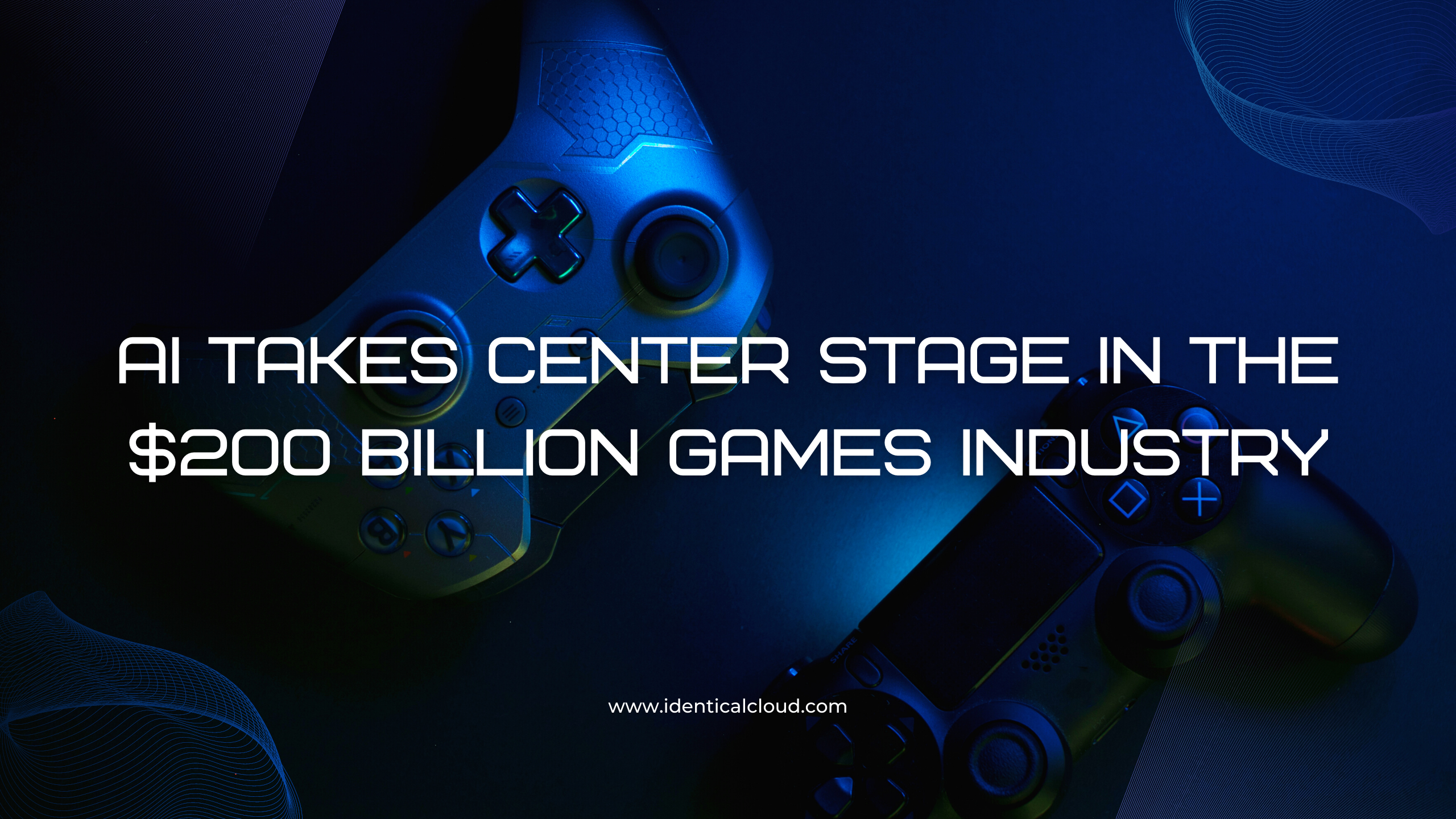
AI Takes Center Stage in the $200 Billion Games Industry
AI Takes Center Stage in the $200 Billion Games Industry
The gaming industry is one of the most rapidly growing industries in the world, and artificial intelligence (AI) is playing an increasingly important role in its growth. In 2022, the global gaming market was worth an estimated $200 billion, and it is expected to grow to $300 billion by 2025. AI is already being used in a variety of ways in gaming, and its impact is only going to grow in the years to come.
One of the most significant ways in which AI is being used in gaming is to create more realistic and intelligent virtual opponents. This has led to the rise of competitive AI-powered gaming, where players compete against sophisticated computer algorithms in complex games like chess, Go, and poker. AI is also being used to create more immersive and engaging game environments. For example, AI can be used to generate realistic weather effects, create dynamic traffic patterns, and populate game worlds with realistic NPCs.
In addition to making games more realistic and engaging, AI is also being used to improve the fairness and balance of multiplayer games. For example, AI can be used to match players of similar skill levels, detect and punish cheating, and balance teams in real time. AI is also being used to personalize the gaming experience for each player. For example, AI can be used to recommend games that a player might enjoy, tailor the difficulty level of a game to a player’s skill level, and provide hints and tips to help players progress through a game.
The adoption of AI in the gaming industry is still in its early stages, but the potential benefits are enormous. AI has the potential to make games more realistic, immersive, engaging, fair, and balanced. As AI technology continues to develop, it is likely to have an even greater impact on the gaming industry in the years to come.
Here are some specific examples of how AI is being used in gaming today:
- Generating realistic NPCs: AI is being used to create more realistic and intelligent NPCs in games. This is being done by using AI to train models on large datasets of human behavior. For example, AI is being used to train models to generate realistic dialogue for NPCs in games like Grand Theft Auto V.
- Creating dynamic game environments: AI is being used to create dynamic game environments that react to player actions. This is being done by using AI to train models on large datasets of game data. For example, AI is being used to train models to generate realistic weather effects in games like Forza Horizon 5.
- Balancing multiplayer games: AI is being used to balance multiplayer games by matching players of similar skill levels and detecting and punishing cheating. This is being done by using AI to train models on large datasets of multiplayer game data. For example, AI is being used to balance multiplayer games like Dota 2 and League of Legends.
- Personalizing the gaming experience: AI is being used to personalize the gaming experience for each player by recommending games that a player might enjoy, tailoring the difficulty level of a game to a player’s skill level, and providing hints and tips to help players progress through a game. This is being done by using AI to train models on large datasets of player data. For example, AI is being used to personalize the gaming experience in games like Fortnite and Call of Duty.
The future of AI in gaming is very bright.
As AI technology continues to develop, it is likely to have an even greater impact on the gaming industry. AI has the potential to make games more realistic, immersive, engaging, fair, and balanced. This will lead to a more enjoyable and rewarding gaming experience for players of all ages.
The Future of AI in Gaming
As AI technology continues to evolve, its impact on the gaming industry is only going to expand further. We can expect to see:
- Enhanced Virtual Reality (VR) and Augmented Reality (AR) Experiences: AI will play a crucial role in creating more immersive and believable virtual worlds, enriching the VR and AR gaming experiences.
- AI-Generated Storylines: Games with procedurally generated storylines, tailored to individual player choices and preferences, will become more common.
- Emotional AI: AI-driven NPCs that can recognize and respond to players’ emotions and actions, leading to more emotionally engaging narratives.
- AI-Driven Game Design: AI will increasingly take an active role in the creative process, contributing to the design of characters, environments, and game mechanics.
Here are some of the challenges that the gaming industry faces in adopting AI:
- The need for more powerful hardware: AI algorithms can be very computationally expensive to run. This means that the gaming industry needs to develop more powerful hardware in order to take full advantage of AI.
- The development of new AI algorithms: There is still a lot of research that needs to be done in order to develop new AI algorithms that are specifically designed for gaming. This research is ongoing, and it is likely to lead to the development of new and innovative AI-powered games in the years to come.
Despite these challenges, the future of AI in gaming is very bright. As AI technology continues to develop, it is likely to have an even greater impact on the gaming industry. AI has the potential to make games more realistic, immersive, engaging, fair, and balanced. This will lead to a more enjoyable and rewarding gaming experience for players of all ages.








